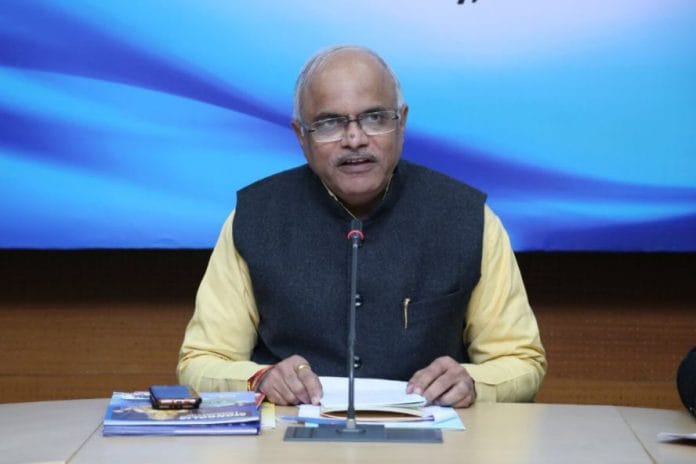Vinay Sahasrabuddhe and Rambhau Mhalgi Prabodhini organising a seminar on 20 & 21 January, political leaders and NITI Aayog vice-chairman set to attend.
New Delhi: Hoping to build consensus on holding simultaneous polls across the country, brainstorm on the issue of ‘one nation, one election’ in Mumbai on 20 and 21 January.
Sahasrabuddhe, also vice-chairperson of Rambhau Mhalgi Prabodhini (RMP), a Right-wing academy for training “socio-political activists” on the outskirts of Mumbai, wants to take forward the proposal that’s a priority for Prime Minister Narendra Modi.
The RMP wants to figure out a way to hold all central and state elections at the same time by the end of the year or the beginning of next year, and has invited all political parties to participate in the discussion on the issue.
“The election process and democratic reforms have been part of Indian democracy. Jayaprakash Narayan had initiated discussion about the ‘right to recall’, and then, the anti-defection act came in the 1980s, followed by the Rajya Sabha election reforms that were initiated during Atal Bihari Vajpayee’s term as PM,” Sahasrabuddhe said.
“This ‘one nation, one election’ will be the mother of all reforms. The PM as well as former President Pranab Mukherjee have spoken about it,” said Sahasrabuddhe, also BJP’s national vice-president.
At a recent NITI Aayog meeting, the PM devoted 20 minutes of his 35-minute address to urge experts, bureaucrats, policy makers and politicians on the need to build consensus around ‘one nation, one election’.
Sahasrabuddhe added: “We have invited all political parties to rise above party politics. Thus, we are going to organise a seminar. Everyone has accepted the invites. Baijayant ‘Jay’ Panda of the Biju Janata Dal and K.C. Tyagi of the JD(U) will be there. The Shiv Sena too will come, and we have invited the Congress as well.”
Rajiv Kumar, vice-chairperson of the NITI Aayog, is expected to be present at the inauguration, while Haryana Chief Minister Manohar Lal Khattar is expected to attend the concluding session.
Topics for discussion
The PM had, on earlier occasions, cited reasons like massive expenditure, diversion of officials from their duties, and disruption of the administrative cycle to strengthen his argument for simultaneous elections. He had said that it could even result in losses for the BJP, but the matter should not be seen through the narrow prism of politics.
Among the topics to be discussed at the seminar include the hazards of a multiplicity of elections, and how and why simultaneous elections can be a possibility.
“There have been suggestions coming from various political parties. For such a drastic step, we need to have an elaborate discussion, rising above party politics. We need to build consensus among the parties,” added Sahasrabuddhe.
The BJP MP said the Parliamentary Standing Committee on personnel and public grievances had previously submitted a report on the issue.
“Many political parties have accepted the idea in principle, but have doubts about its implementation. That’s why there’s need for a discussion,” Sahasrabuddhe said.
Other parties’ stated stances
In October, election commissioner O.P. Rawat made a suggestion about simultaneous elections, which drew flak from opposition parties.
Congress leader Abhishek Manu Singhvi had said that there are constitutional, legal and factual issues with the idea. He said even the government had not taken a stand on it, and neither had there been a discussion with other parties. He also raised the issue of the current terms that could be interrupted if the idea was implemented.
JD(U)’s K.C. Tyagi reportedly said that while his party favoured the concept, all party consensus was essential.
CPI MP D. Raja was reported saying that the Election Commission was toeing the BJP’s line, and the proposal for simultaneous elections was not feasible.






